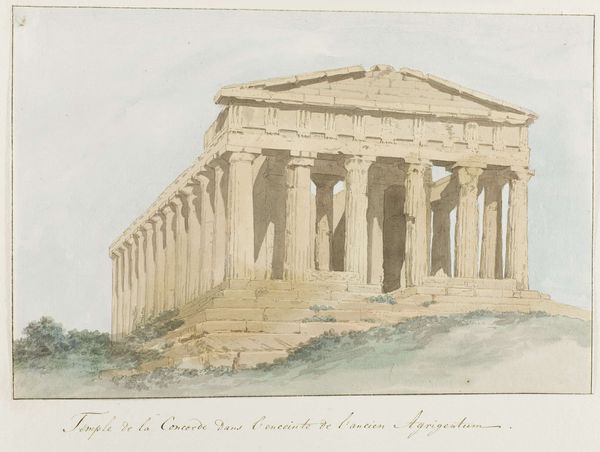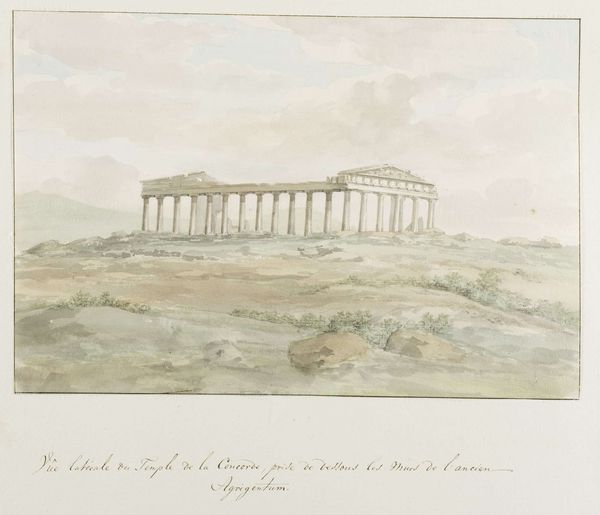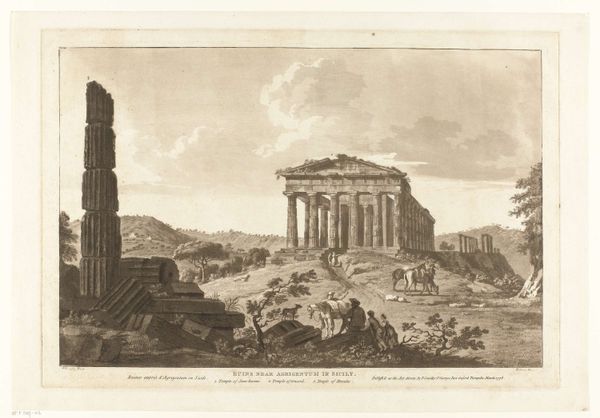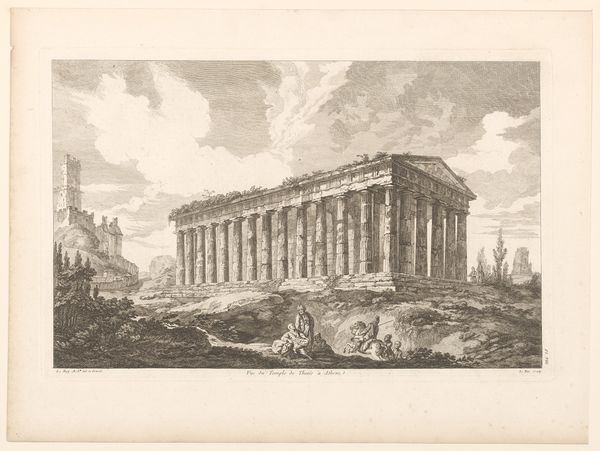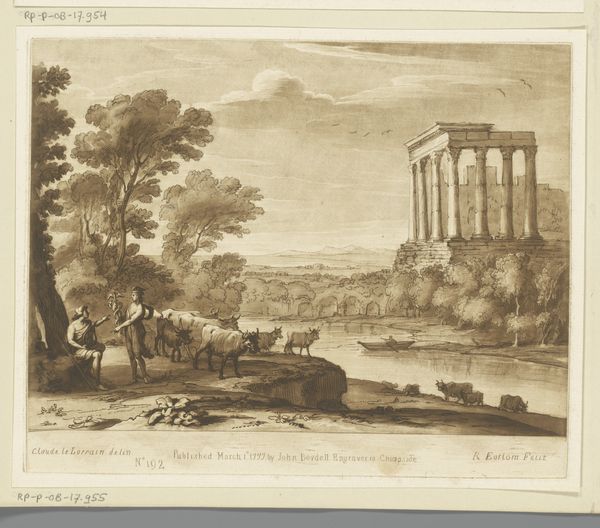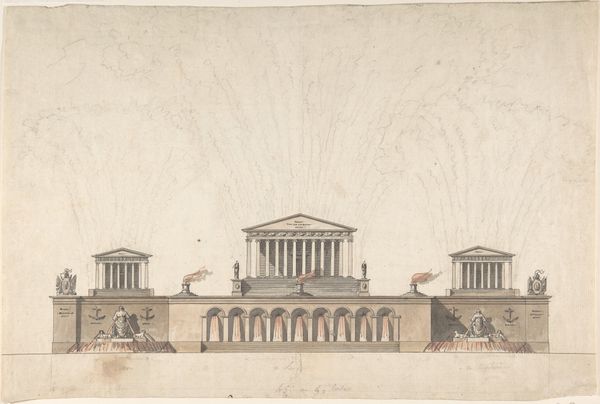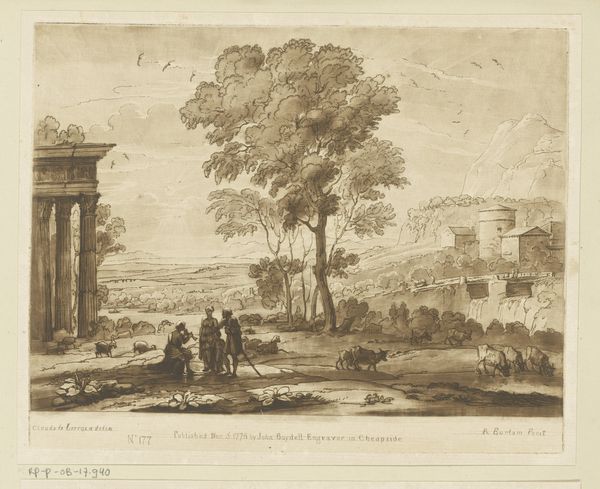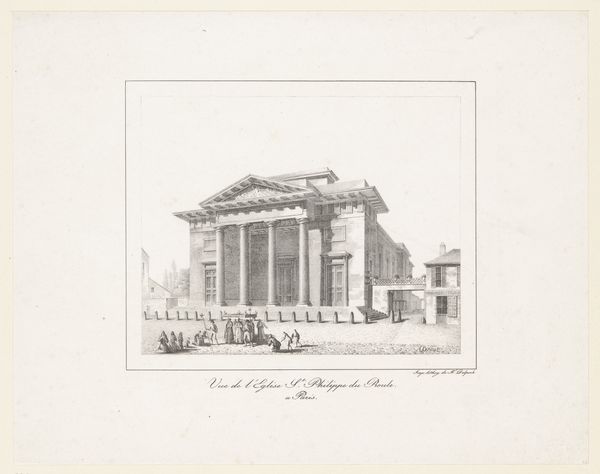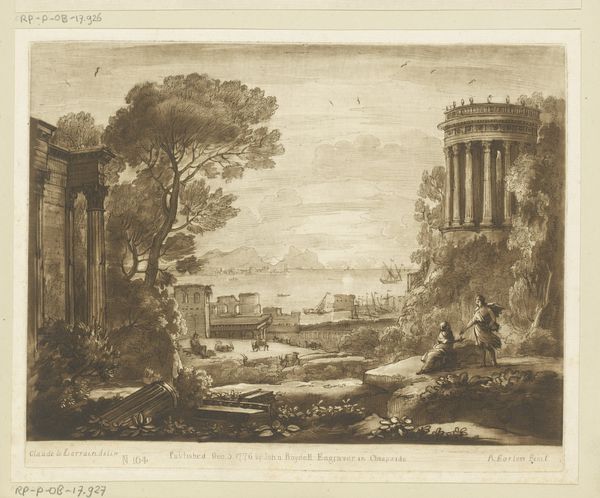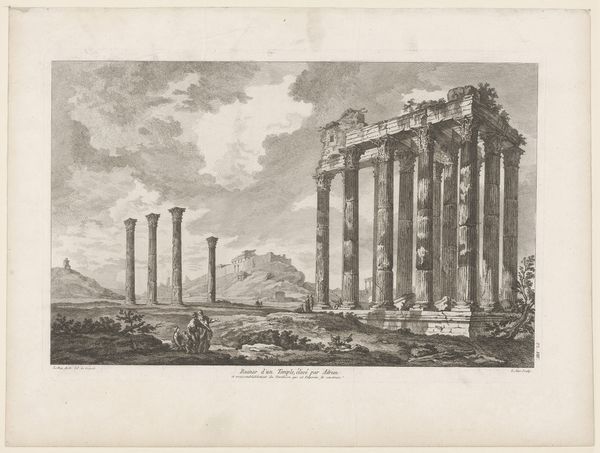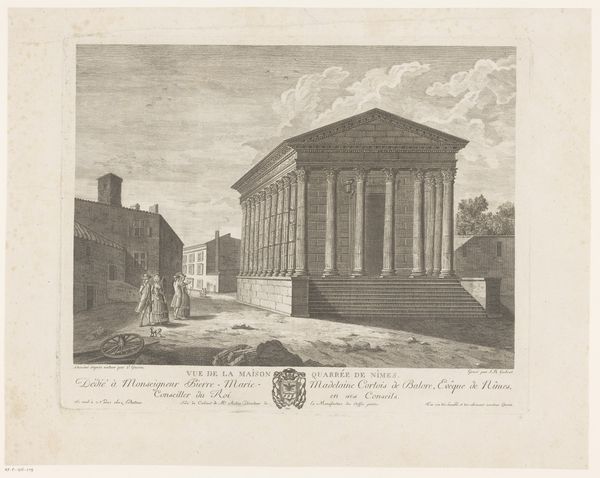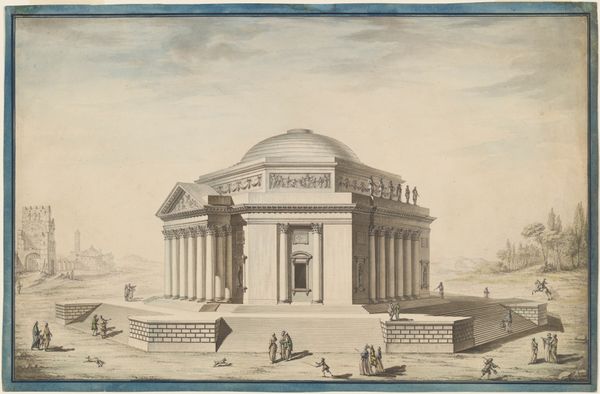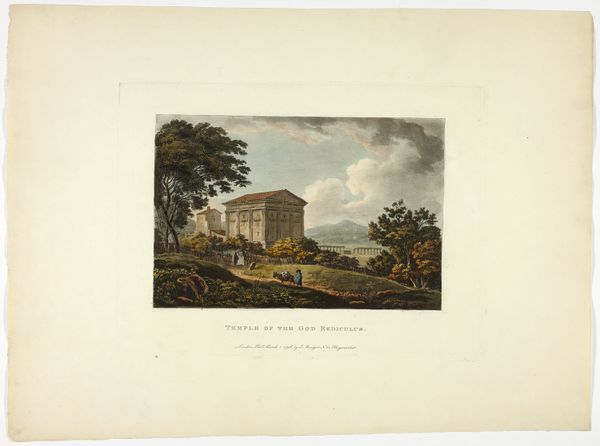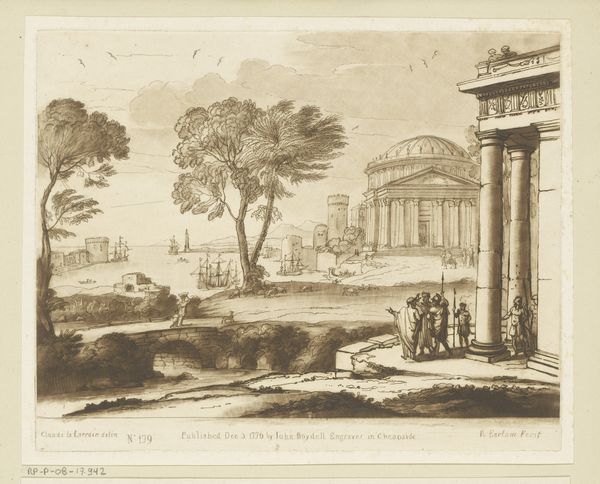
drawing, watercolor
#
drawing
#
neoclacissism
#
landscape
#
classical-realism
#
watercolor
#
history-painting
#
watercolor
Dimensions: height 315 mm, width 525 mm
Copyright: Rijks Museum: Open Domain
Editor: This watercolor drawing, created in 1778 by Louis Ducros, is titled "Concorde tempel binnen muren van oude Agrigentum." The pale washes create a somber, reflective mood. It makes me wonder, how do paintings like this function within a broader cultural landscape? Curator: That's an insightful question. Think about the era. Neoclassicism was ascendant, a movement looking back to the perceived order and rationality of ancient Greece and Rome. Images like this participated in the construction of a visual history and legitimized cultural authority through idealized landscapes of the classical world. Why Agrigentum, why now? Editor: I suppose it was meant to inspire? Was it purely about aesthetics? Curator: The choice wasn't arbitrary. Agrigentum, modern-day Agrigento in Sicily, held significant historical weight. Views like these became popular souvenirs on the Grand Tour, reflecting the artist's education and cultivation but also feeding into a larger imperial gaze, defining and appropriating cultural heritage. The museum context adds to this. Editor: So, it's not just about appreciating beauty but also understanding how these images are connected to historical and political power? Curator: Precisely! It urges us to consider the power dynamics embedded in seemingly 'objective' depictions of the past. The artist’s intention isn’t as simple as showing us the landscape; instead, it creates and reinforces ideologies. What do you take away now? Editor: I see that it's important to not only appreciate the skill and artistry, but also think critically about how history, power, and even the act of tourism intersect in an artwork.
Comments
No comments
Be the first to comment and join the conversation on the ultimate creative platform.
